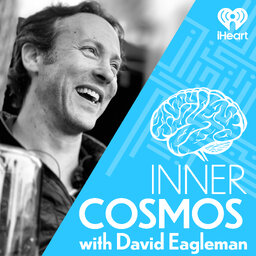Ep26 "Why do people dislike moist more than moose, but not as much as merts?"
We all know people who hate the word "moist". But why are they fine with synonyms such as "damp" or "wet"? What’s going on in their brains, and what does this have to do with synesthesia, autism, shapes, slacks, and sound probabilities? Join this week's episode as Eagleman leads us into the new and wild world of word aversion.
 Inner Cosmos with David Eagleman
Inner Cosmos with David Eagleman


